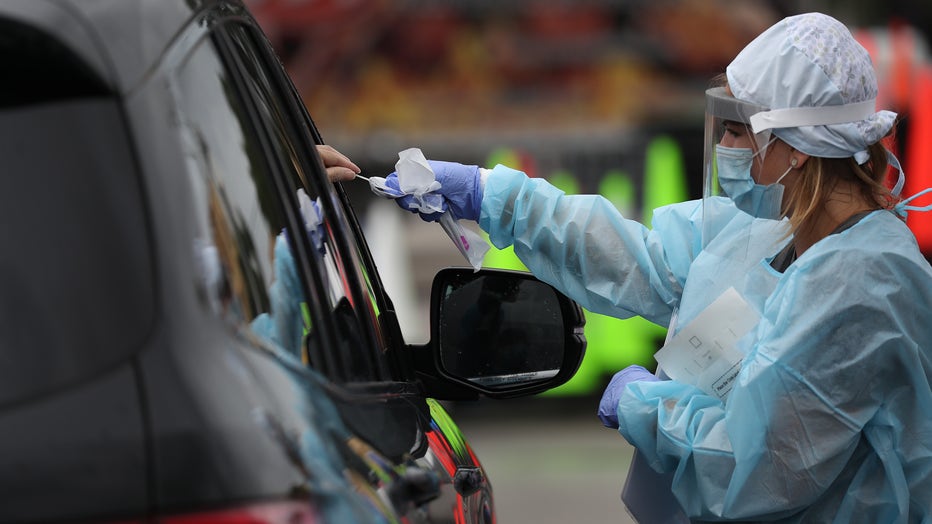COVID-19 recovery can take a few weeks even for young adults
What are antibodies?
Antibodies are Y-shaped proteins than bind to one's foreign invaders, like viruses, bacteria, fungi and parasites.
LOS ANGELES - Recovering from even mild coronavirus infections can take at least two to three weeks, according to U.S. research published Friday.
Lingering symptoms can even affect otherwise healthy young adults. Among those aged 18 to 34 with no chronic illness, 1 in 5 were still experiencing COVID-19 symptoms after two to three weeks, the study found.
Cough, fatigue and body aches were among the most common persistent symptoms.
Most previous research on long-lasting COVID-19 symptoms has focused on sicker hospitalized adults. Only 7% of patients in the new study needed hospital treatment.

FILE - A health care worker gives a nasal swab to a person to do a self administered test at the new federally funded COVID-19 testing site at the Miami-Dade County Auditorium on July 23, 2020 in Miami, Florida. (Photo by Joe Raedle/Getty Images)
The study was led by researchers at the Centers for Disease Control and Prevention. They did phone surveys of 274 patients in several states who tested positive for the virus between the end of March and June 4. Patients were queried two to three weeks after those tests.
About one-third of middle-aged adults had not fully recovered, and for those 50 and older, the rate was almost half.
Patients with chronic illness, especially obesity, were more likely to have lingering symptoms.
The results are somewhat surprising, since with flu and many other viral infections, most patients recover completely within two weeks, said Dr. Wesley Self of Vanderbilt University. He leads a network of 14 medical centers that collaborated with the CDC on the study.
RELATED: CoronavirusNOW.com, FOX launches national hub for COVID-19 news and updates
Some of the current U.S. spikes in infections are thought to be driven by young adults gathering in bars and other places. Self said the study results should underscore that they “should take social distancing very seriously.”
Although COVID-19 has disproportionately affected Blacks and Hispanics, they were not more likely than others in this study to face long recoveries.

